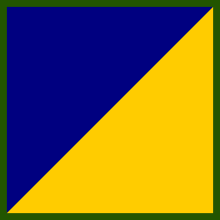Pembrokeshire Yeomanry
| Pembroke Yeomanry | |
|---|---|

|
|
| Active | 1794 – present |
| Country |
|
| Branch |
Yeomanry (First World War) Royal Artillery (Second World War) Royal Logistic Corps (current) |
| Size | One Squadron |
| Battle honours |
Fishguard South Africa 1901 First World War Gaza Tell'Asus Jericho Egypt 1916–17 Jerusalam Palestine 1917–18 Somme 1918 Bapaume 1918 Epehy Hindenburg Line Pursuit to Mons France and Flanders 1918 Second World War No battle honours were awarded. It is tradition within artillery units that the Regiment's guns represent its colours and battle honours. |
The Pembroke Yeomanry was a regiment of the British Army formed in 1794. It saw action in the Second Boer War, the First World War and the Second World War. The lineage is maintained by 224 (Pembroke Yeomanry) Transport Squadron, part of 157 (Welsh) Regiment RLC.
The regiment was originally formed by Lord Milford as part of the response to the French Revolutionary Wars in 1794. The Prime Minister, William Pitt the Younger, proposed that the English Counties form a force of Volunteer Yeoman Cavalry that could be called on by the King to defend the country against invasion or by the Lord Lieutenant to subdue any civil disorder within the country. Eighty members of the Pembrokeshire Yeomanry were present at the Massacre of Tranent in Scotland in 1797.
In 1797 the French Republican Légion Noire landed off Carregwastad Point, in what would be the last invasion of Britain, only to surrender to a much smaller force including the Pembroke Yeomanry hastily assembled under Lord Cawdor. Two of the French frigates involved were captured and one was re-commissioned in the Royal Navy as HMS Fisgard. In 1853 Queen Victoria awarded the battle honour Fishguard upon the Regiment. The unit became the first volunteer unit to receive a battle honour and remains the only unit still serving in the British Army to bear the name of an engagement on British soil.
During the Boer War the Yeomanry provided the 30th (Pembrokshire) Company of the 9th (Welsh) Battalion of Imperial Yeomanry, landing in South Africa in 1890 to fight as Mounted Infantry, and replacing them, a second 30th Company in 1901, both saw considerable action.
...
Wikipedia
